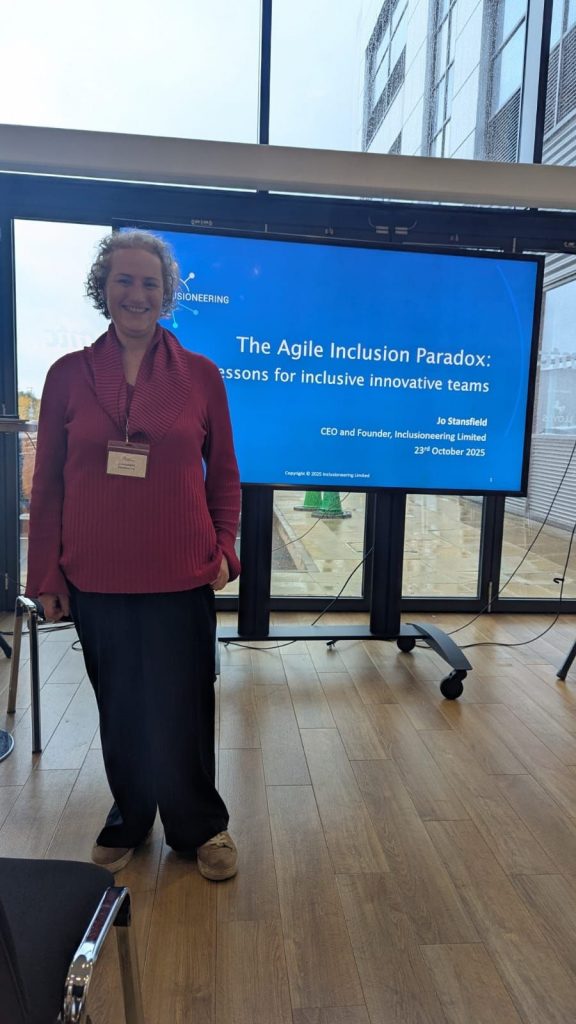Inclusion is no longer a buzzword – it’s a business necessity.
The latest Women in UK Manufacturing 2025 report, led by the University of Cambridge’s @ Institute for Manufacturing sets out a clear message, if the UK’s manufacturing sector wants to thrive, it must lead with inclusion.
This year’s review takes an honest look at the progress made and the work still to do to ensure women, from all backgrounds, can build meaningful and lasting careers in manufacturing.
The report reveals that women now make up 28.4% of the UK manufacturing workforce, up 1.6 percentage points from last year. Women in senior roles are also on the rise, now holding 24.8% of managerial, director, and senior positions.
These gains may seem modest, but they mark steady progress toward the government’s ‘35 by 35’ target – achieving 35% women’s participation in manufacturing by 2035.
Representation among women from non-white backgrounds has also grown sharply, from 9.6% in 2023 to 13.5% in 2024. The most notable increases came from women of Indian, Black, and other Asian backgrounds.
Despite improvements, manufacturing still lags behind the national snapshot. The gender pay gap stands at 14.9%, almost two percentage points higher than the UK average. Women continue to face barriers in skilled trades and technical roles, positions that often serve as gateways to career advancement.
While flexible working is a high priority for women, disabled employees, and those with long-term health conditions or neurodivergence, it remains a sticking point across the sector.
The report also highlights a demographic challenge – one in four manufacturing workers is expected to retire within the next decade, and nearly three-quarters of them are men.
Unless the sector broadens participation and embraces inclusivity, it risks a severe talent shortage that could hinder growth and innovation.
Inclusive leadership, through practices and qualities are also reported to empower diverse teams.
Through surveys and interviews with professionals across the UK, researchers found that employees most value open communication, fairness, trust, and respect from their leaders.

Inclusioneering’s CEO and Founder, Jo Stansfield runs
The Agile Inclusion Paradox session at the Women in UK
Manufacturing Conference 2025
Key findings are:
- 75% of those who left manufacturing said feeling undervalued was a key reason for their departure.
- 46% of women experiencing menopause symptoms reported a negative impact on their work, with many facing stigma or limited support.
- Nearly half of respondents with disabilities or health conditions said they’d encountered discrimination or barriers in the workplace.
These results underscore why leadership matters. As the report puts it: ‘Inclusive cultures begin with fairness and equity in how employees are treated and supported’.
The report also includes a call to action for business leaders and policymakers – to make inclusive leadership a strategic priority.
It proposes five steps every organisation can take:
- Champion EDI from the top, ensuring a senior leader drives diversity and inclusion initiatives.
- Assess the current state of workplace diversity to identify gaps and opportunities.
- Co-create an inclusion vision and measurable targets with staff.
- Design targeted initiatives that genuinely engage employees.
- Monitor progress through transparent reporting and accountability.
For policymakers and programme leaders, the report urges investment in evidence-based research, integration of diversity metrics into funding criteria, and strong representation targets in industrial programmes.
As automation, AI, and sustainability transform the industry, the skills and perspectives of women, across backgrounds, abilities, and experiences are vital to ensuring the UK remains competitive.
The report makes one thing clear: diversity and inclusion aren’t ‘nice-to-haves’ – they are essential to the future of UK manufacturing.
By embedding inclusion into leadership, companies don’t just improve culture, they build resilience, unlock innovation, and secure the next generation of talent.
If manufacturing is to thrive in the years ahead, it must be built by, and for everyone.

This year’s Women in Manufacturing Summit
